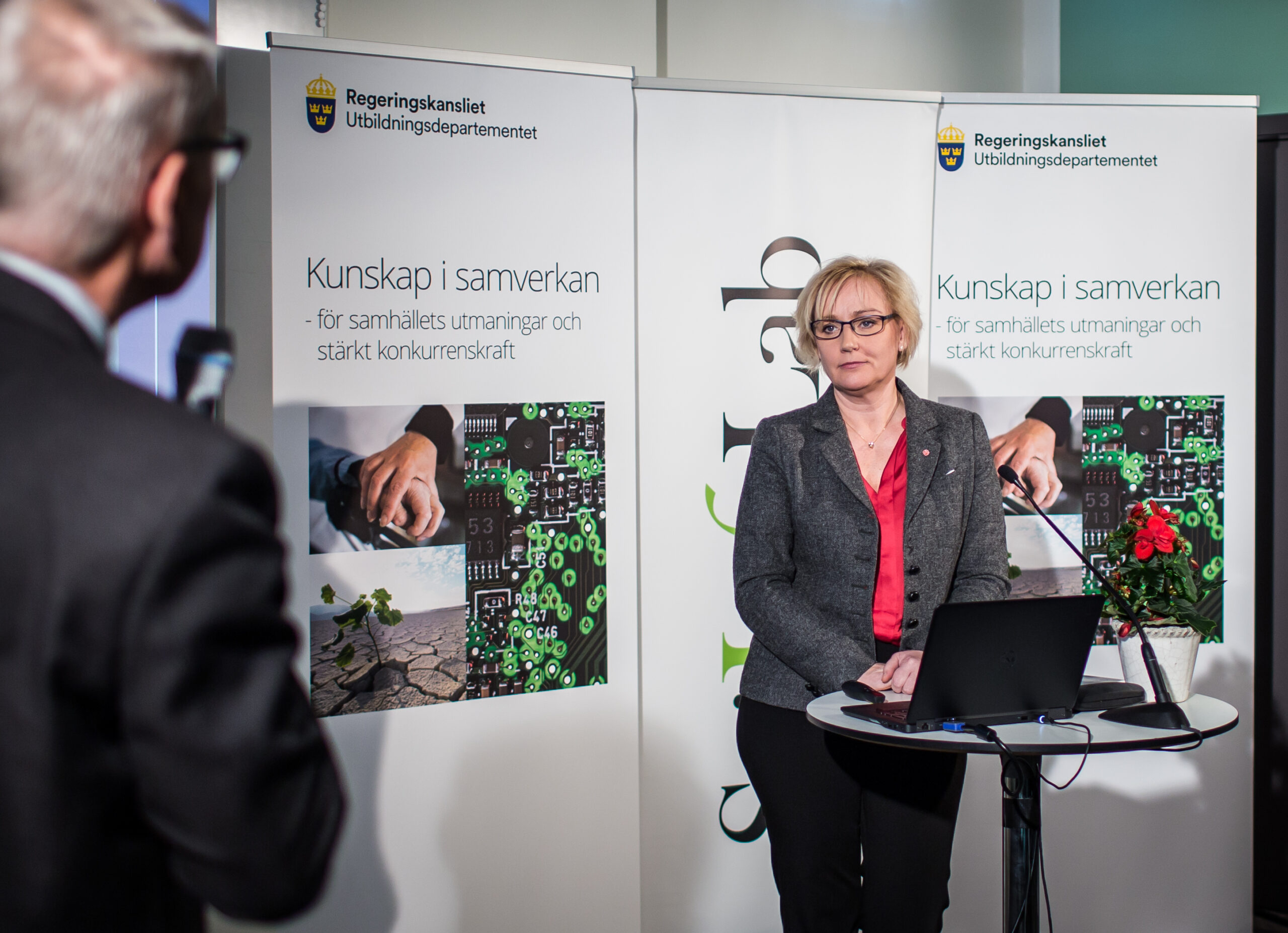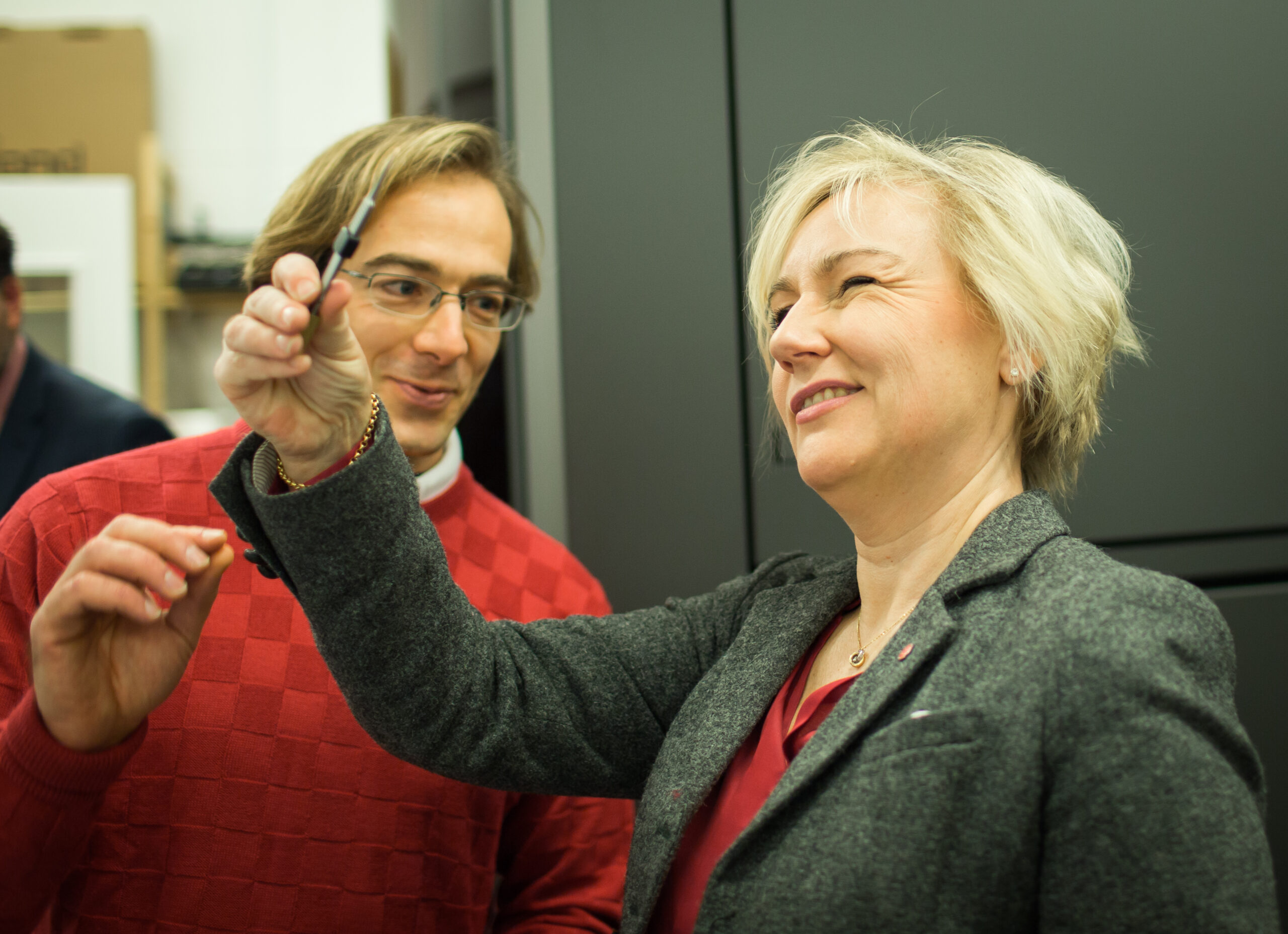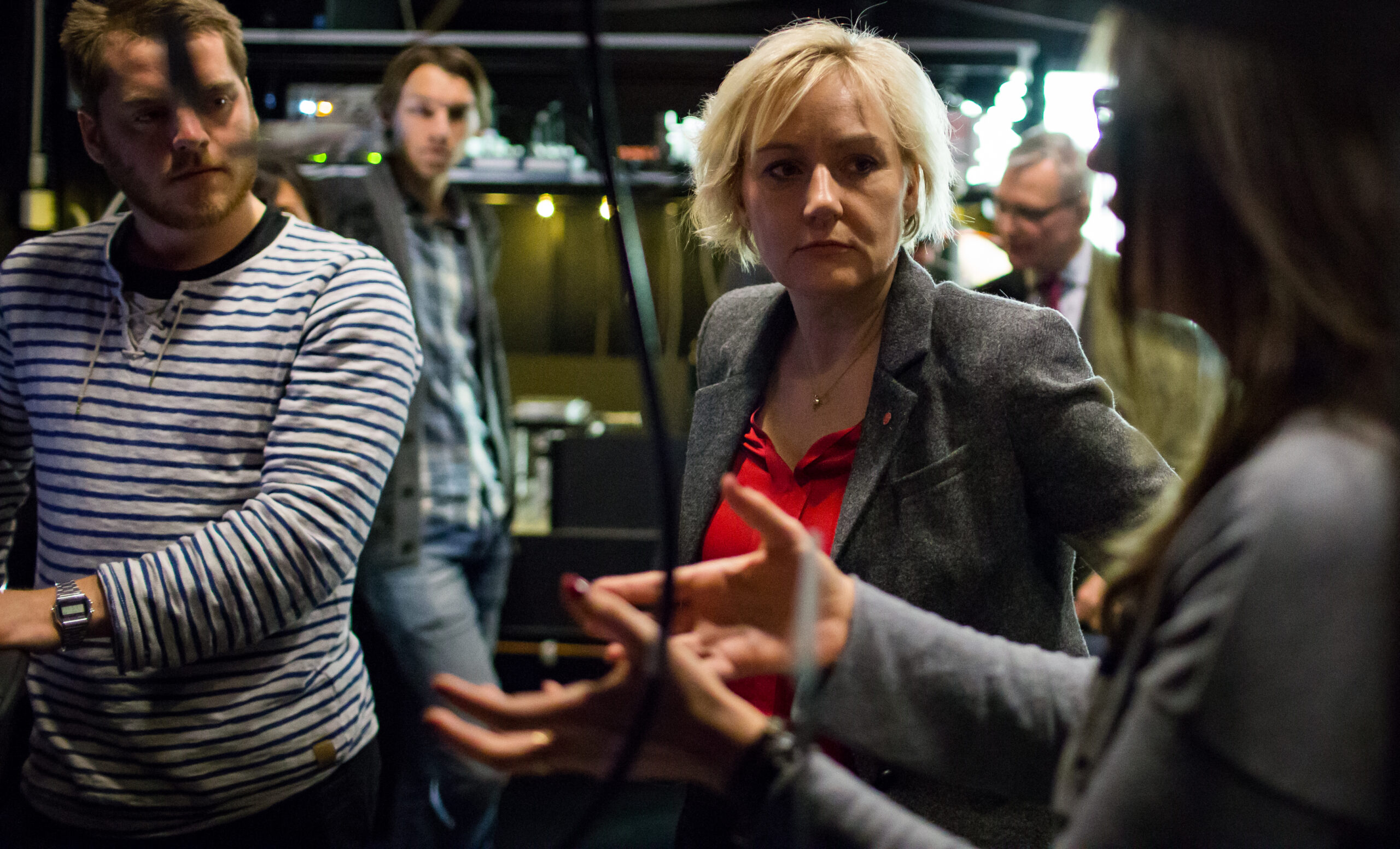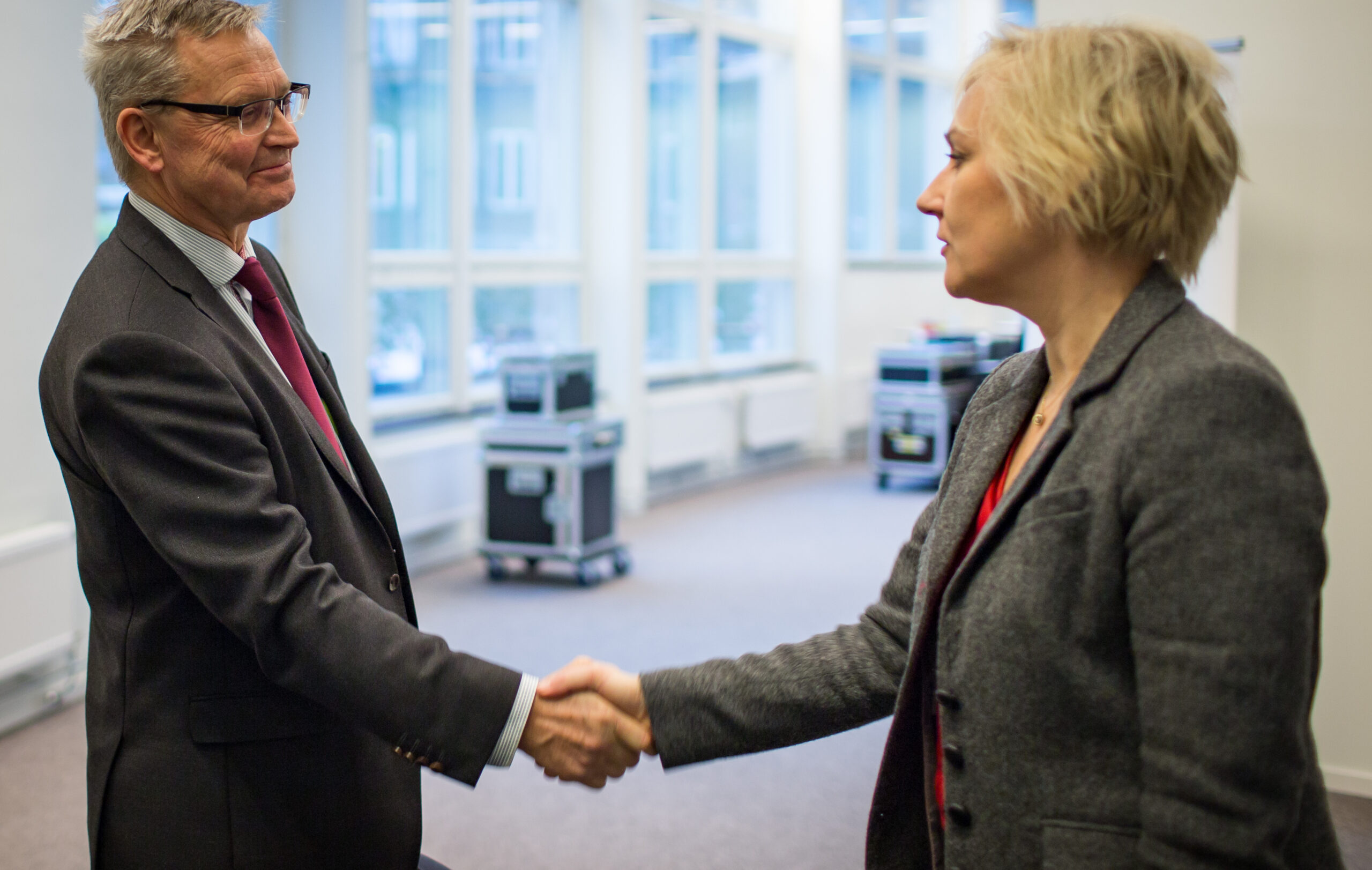Director Olli Kallioniemi comments on the research bill
On November 28, the Swedish Minister for Higher Education and Research, Helene Hellmark Knutsson, presented the research bill for 2017-2020 at SciLifeLab in Solna. “The bill gives SciLifeLab the same level of funding as during the last period, providing continuity and long-term perspective for developing SciLifeLab forward”, said SciLifeLab Director Olli Kallioniemi.
Professor Kallioniemi continued:
“The government provided 206 million SEK of national funding, 52 million SEK for drug development and 150 million SEK for SFO funding (via the host universities) as support for SciLifeLab.”
“SciLifeLab is considered first and foremost a national establishment, and is together with Max-IV and ESS constituting the three major national infrastructures for science in Sweden. There is strong hope that these infrastructures could develop into strong competence clusters and hubs in their areas of interest. The government is focused on leveraging Swedish research and infrastructure for creating increased value for society, something that SciLifeLab could significantly contribute to. ”
“The government also strongly emphasizes the importance of improved access to research infrastructures, particularly for industrial customers, health care and other public sector bodies. A wish is even expressed that the infrastructures should actively communicate and look for collaborative potential in industries that do not have previous traditions for collaborating with academia, which SciLifeLab will put effort into in the coming years.”
“Many other potential aspects of the research bill may also be of interest to the development of SciLifeLab and our community, like the launch of a collaborative national program set up for the entire life science area. There is new support and strategies for biobanks and application of registry-data as well as clinical research, a 10-year national research program on antibiotic resistance, “cancer moonshot” collaboration, improved career opportunities for young scientists and focus on data-driven research. “
The Chair of the Board of SciLifeLab, Carl-Henrik Heldin commented:
“The bill also contains some worrying aspects. There are only minor financial increases for research, and for basic life science research in essence no increases at all, maybe even a decrease depending on how the 1.5 billion of funding to the universities will be used. Until today SciLifeLab and the host universities have recruited 20 excellent young researchers, most from abroad, within our fellows-program. This is an enormous asset for Swedish research, but in the light of the bill the question arises, how these people should be able to obtain sufficient long-term funding for themselves and their research.”
|
|
|
|
|
|
|









